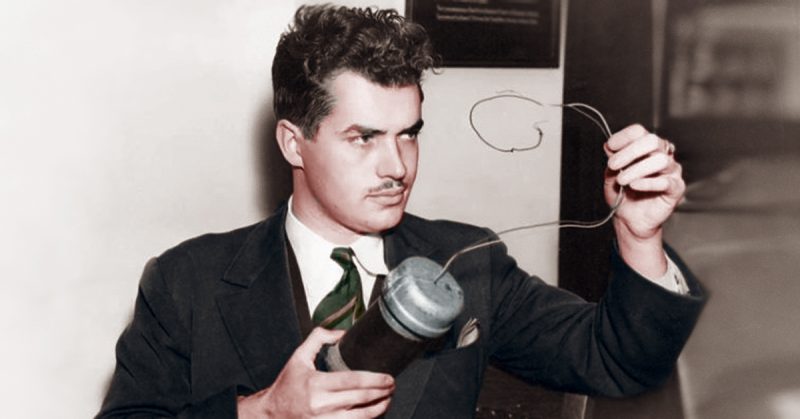It’s well-known that exceptionally gifted people are often a little unusual. Our pop culture is full of such individuals, and historically Van Gogh, Picasso, and Nikolai Tesla are all prime examples of people who were utterly brilliant, but also saw the world in a very different light than the rest of us. Another example of this phenomenon is Jack Parsons.
Born in 1914, Parsons helped to not just put space exploration on the map, he was one of the gifted scientists who helped create it.
Parsons was one of the co-founders of Jet Propulsion Laboratories (JPL), and made enormous contributions to the field of rocket development.

One area he was best known for was his work in solid fuel propellant, according to Space Safety Magazine. His technology became the basis for the solid engines in the space shuttles and the Minuteman missiles.
He was one of the founders of Aerojet Corporation. In other words, when we make references to someone being like a rocket scientist, Jack Parsons is the kind of person who sets the standard for the comparison.
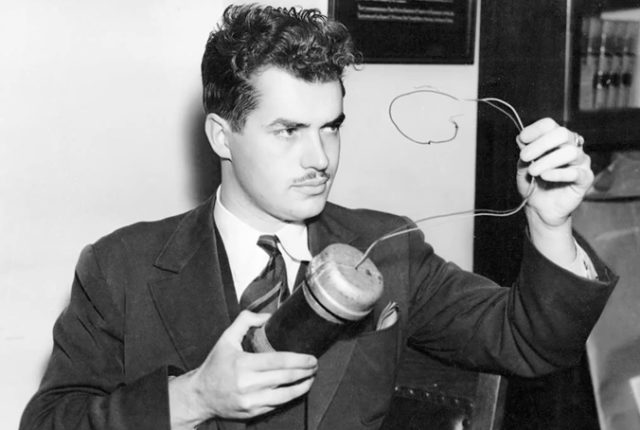
Why, then, have we never heard of him? Given the opening paragraph of this article, it should come as no surprise that Parsons, in addition to his brilliance, was also a very strange and disturbed man.
Parsons was, undeniably, a searcher, and not just in his professional life. By the time he was in his mid-twenties, Parsons had developed an intense interest in spirituality and magick, and began attending nightly meetings of Ordo Templi Orientis (OTO), the sex-and-drug-fueled occult society created by Aleister Crowley, according to Motherboard.
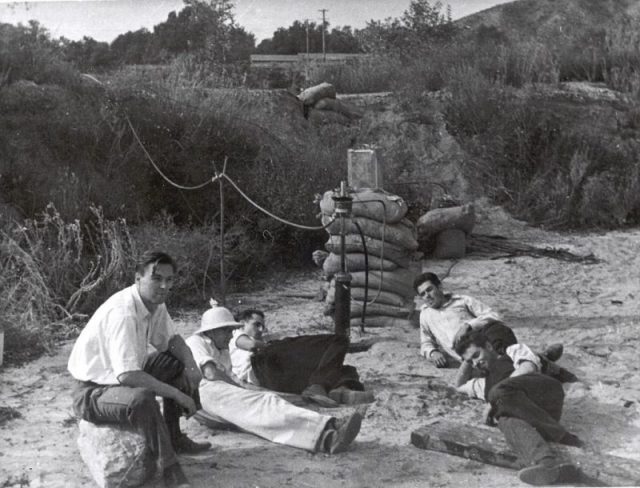
At the OTO he watched bizarre rituals related to sex magick as conceived by Crowley, where participants took part in a warped version of the Catholic mass, with invocations, swords, and a version of the Eucharist that included the consumption of wine and cakes that were made with menstrual blood.
Parsons was captivated by the idea that sex and spirituality could be combined to raise the level of the practitioner’s consciousness. He was heard chanting poetry written by Crowley while he was preparing to ignite rockets at work.
As his career was progressed, so did his involvement with OTO. He eventually became the leader of the Los Angeles group and communicated regularly with Crowley.
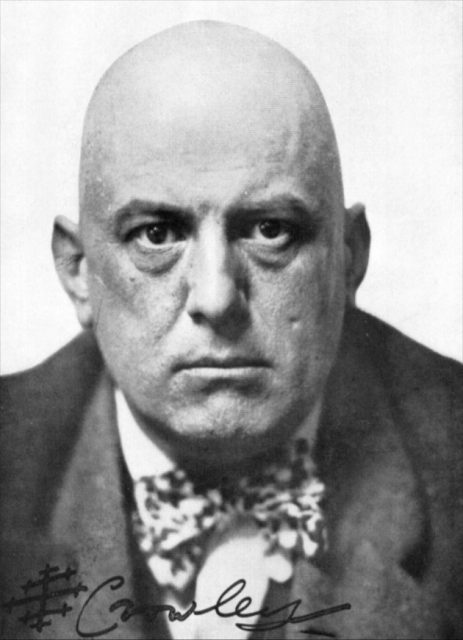
His work with the JPL and his role as one of the founders of Aerojet were earning him big bucks, and he took some those dollars and used them to buy a mansion in Pasadena’s “Millionaire’s Row.” The mansion was dubbed the Parsonage, and became the new home of the LA branch of OTO, as well as attracting fringe scientists and science authors to join the mix.
His behavior at work was erratic and he often treated it like his own personal playground. He fought duels with a friend on the testing range, and he seduced secretaries, bringing them back to his mansion.
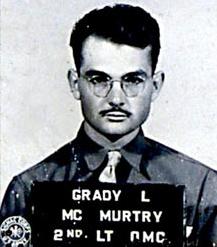
He once blew up a batch of rocket fuel because he didn’t like it, creating a huge explosion and causing tremendous amounts of damage. The field of rocketry was being taken more and more seriously, though, and his shenanigans didn’t play well with his colleagues. The FBI was even called in to investigate him as a possible security risk.
In 1943 he was offered $20,000 for his shares in Aerojet, which he decided to take as he was noticing the increasing bad feelings from his colleagues. Parsons used the money to pay for the other major part of his life — his hedonistic spiritual explorations at the Parsonage.
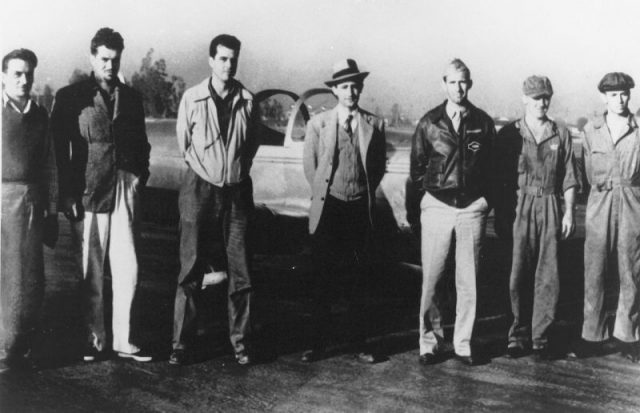
He met L. Ron Hubbard, and, finding him to be a kindred soul and his magickal equal, invited him to the Parsonage, where he was made an OTO initiate. The two men then embarked on a lengthy series of ritual workings that were meant to raise the red goddess, Babalon.
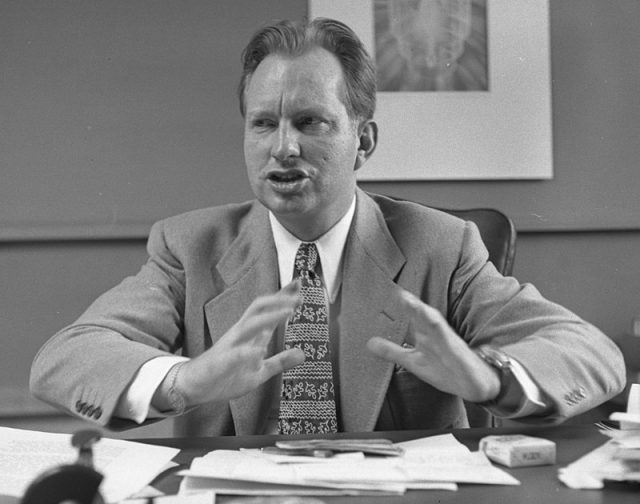
Their collaboration ended when, after Parsons had spent most of the money he got for his shares in Aerojet, Hubbard proposed a scheme to raise more cash with a capital investment from Parsons. Parsons handed over the money in perfect trust, and Hubbard skipped town with the money — and with Parsons’ wife in the bargain.
In his professional life, Parsons never regained his former stature or income. He struggled with money and worked various small jobs that underutilized his undeniable talents, including creating pyrotechnic effects for Hollywood.
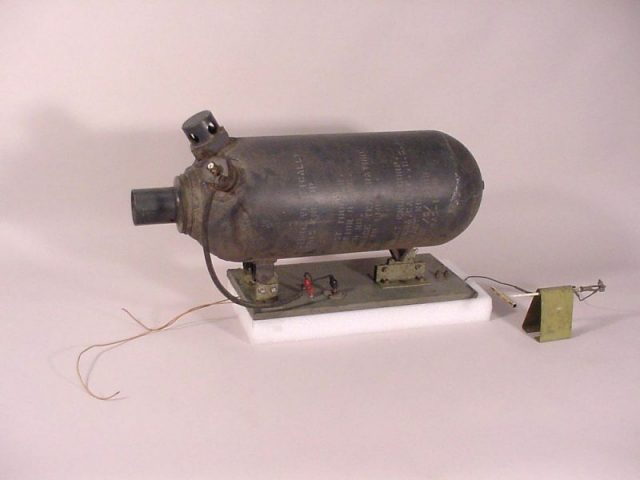
His strange life ended in 1950 when he was only 37 years old. He was mixing chemicals in his workshop when they exploded. He survived for a time, but in the end his injuries took his life. There are those who thought that his death may have been an assassination or a magickal experiment gone wrong, although it’s far more likely he simply made a mistake.
Read another story from us: The Bizarre Obsessive Compulsive Rituals and Habits of Nikola Tesla
Either way, his name was purged from most of the technical documents for the various projects he was involved with, or at least rendered into a footnote, and the man who was as mad as he was brilliant largely faded from history.
